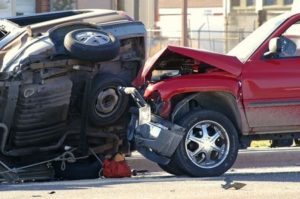
An increasing number of safety advocates are pushing for a change in the language we use to describe traffic crashes. They argue that calling crashes “accidents” removes blame from at-fault drivers, and makes crashes seem like an act of fate. After all, human error is the number one cause of traffic incidents.
Safety advocates – including local, state and federal officials, as well as grassroots groups and community leaders – are campaigning to shift the way we characterize roadway collisions, according to a recent New York Times article. This is not merely semantics but the result of a serious safety crisis. Crash fatalities are the highest they have been in 50 years. In 2015, about 38,000 people died in automobile crashes, an 8 percent increase from 2014.
Almost all crashes are caused by errant driver behavior, such as distracted driving, drinking, driving while tired, and other dangerous activities. Conversely, mechanical malfunctions, weather, and other similar factors only account for approximately 6 percent of crashes and collisions.

Merriam-Webster defines accident as “an unexpected happening causing loss or injury which is not due to any fault or misconduct on the part of the person injured.” Thus safety advocates argue that the term tends to absolve wrongdoers of responsibility, leading to misconceptions about the preventability and seriousness of traffic injuries and fatalities. However, others do not see what changing the term “accident” to “crash” will really solve in the real world.

The Last Thing You Should Worry About Is How You’re Going To Pay For Your Medical Bills.
Across the nation, states and organizations have begun changing “accident” to crash (or another similar term) in legal documents, press releases, news stories, and other communications. Over half of the state Departments of Transportation have moved away from using “accident” in reference to traffic crashes. The Nevada legislature passed a law to change accident to crash in legal documents like police reports and insurance policies. Some cities, such as San Francisco and New York, have also created citywide policies to reduce fatalities that decry “accident” in favor of the more neutral “crash.”
Changing our collective lexicon regarding traffic crashes will not solve the growing problem of deaths due to distracted and impaired driving. However, it is one relatively easy step anyone can take to help bring attention to preventable human error in automobile deaths.
